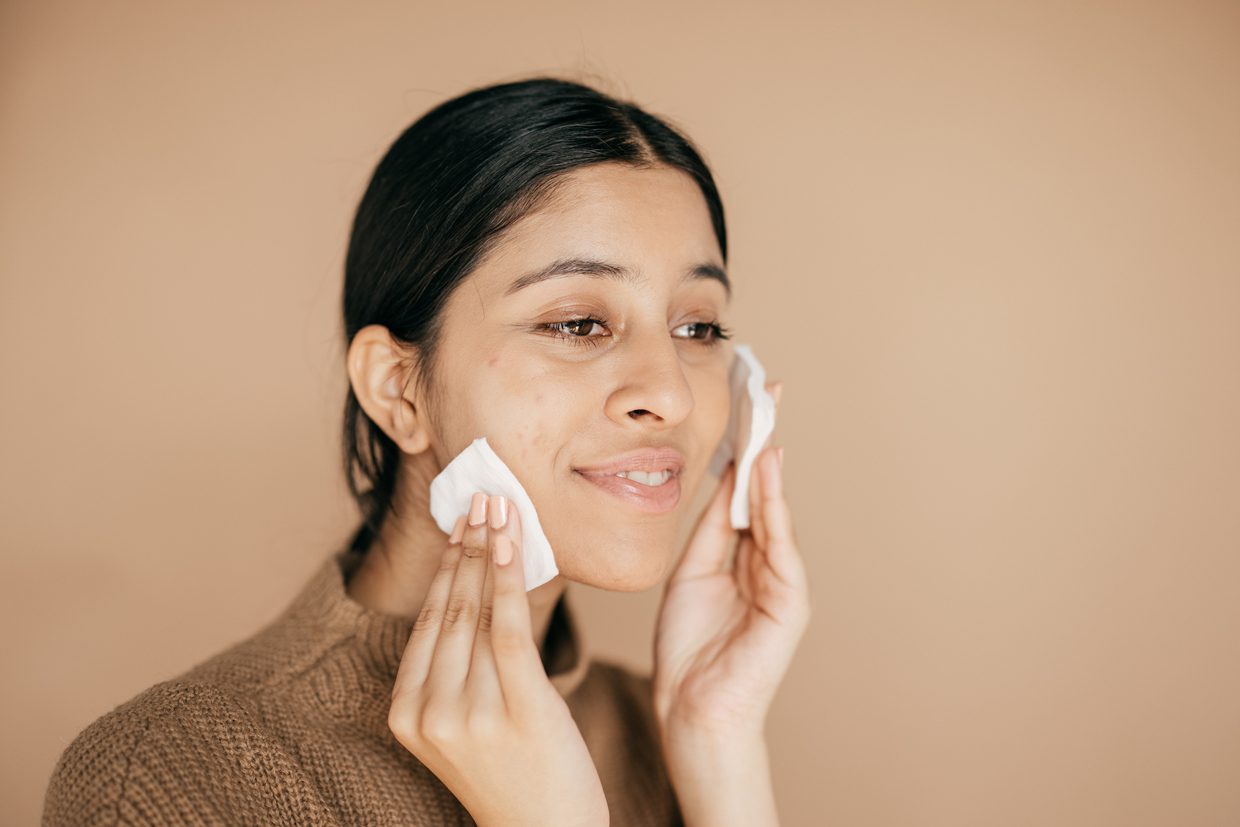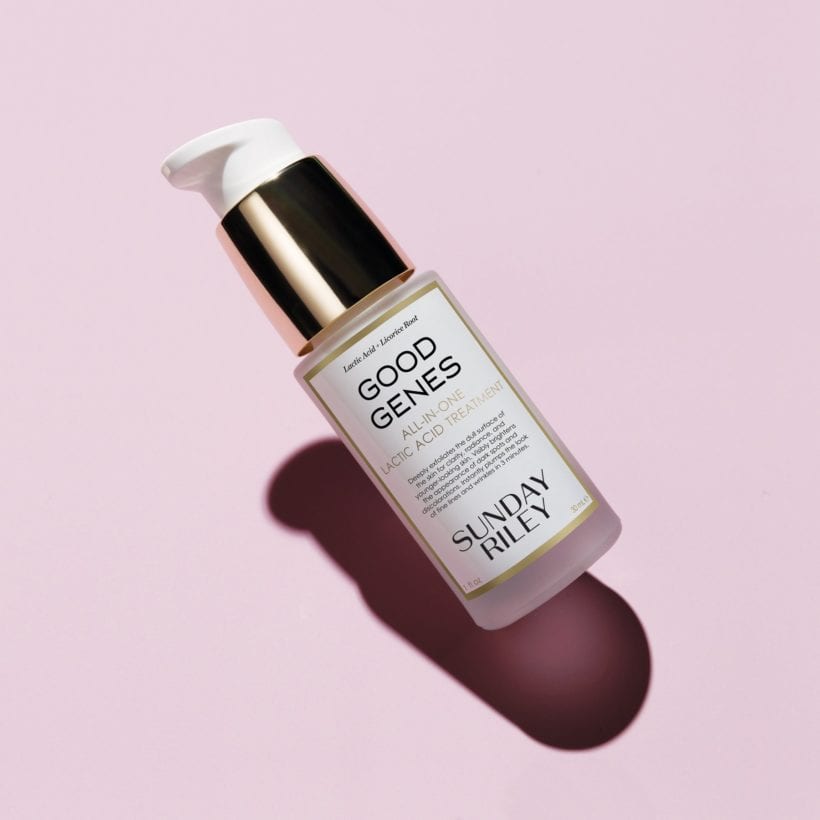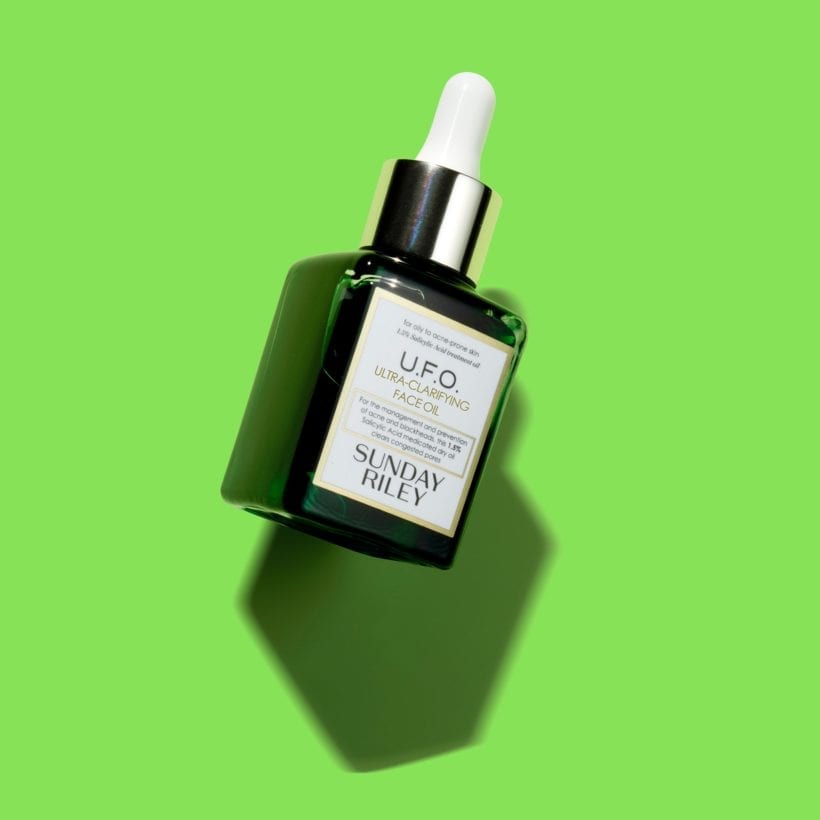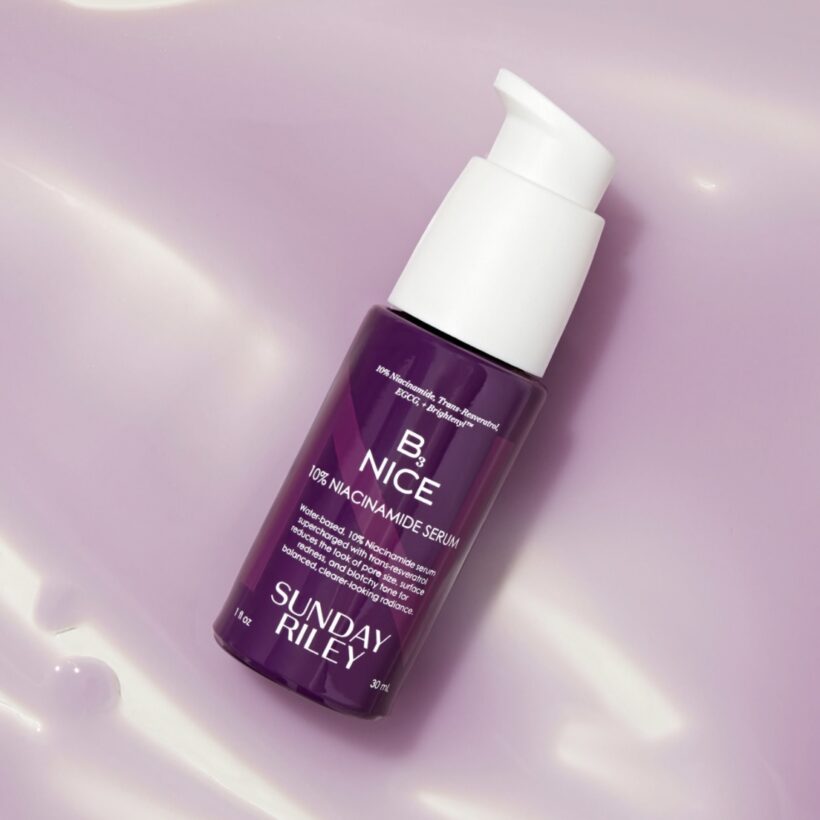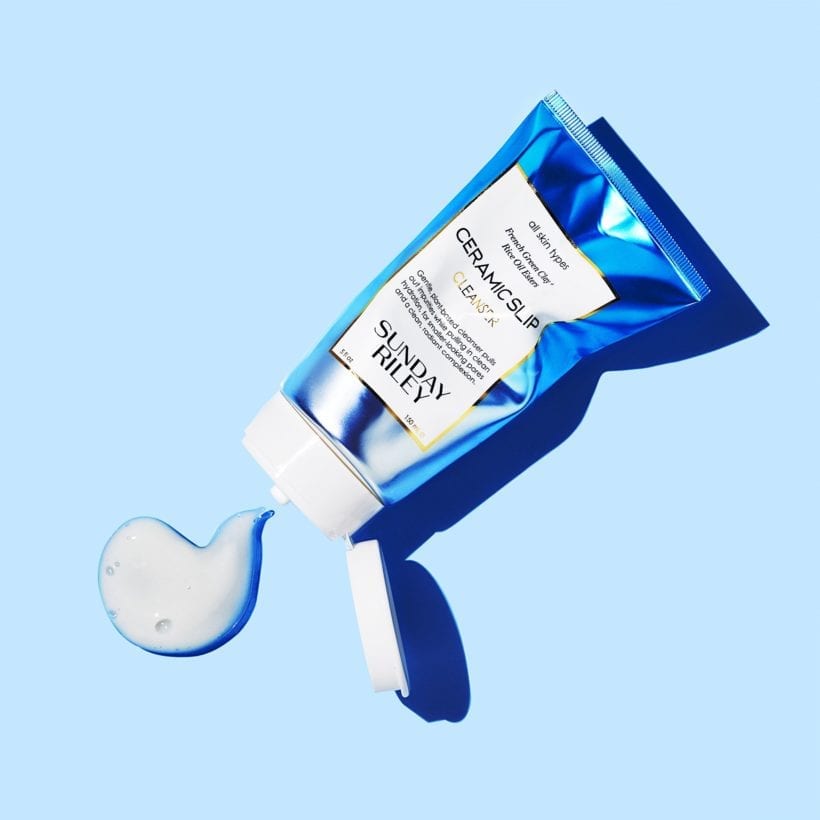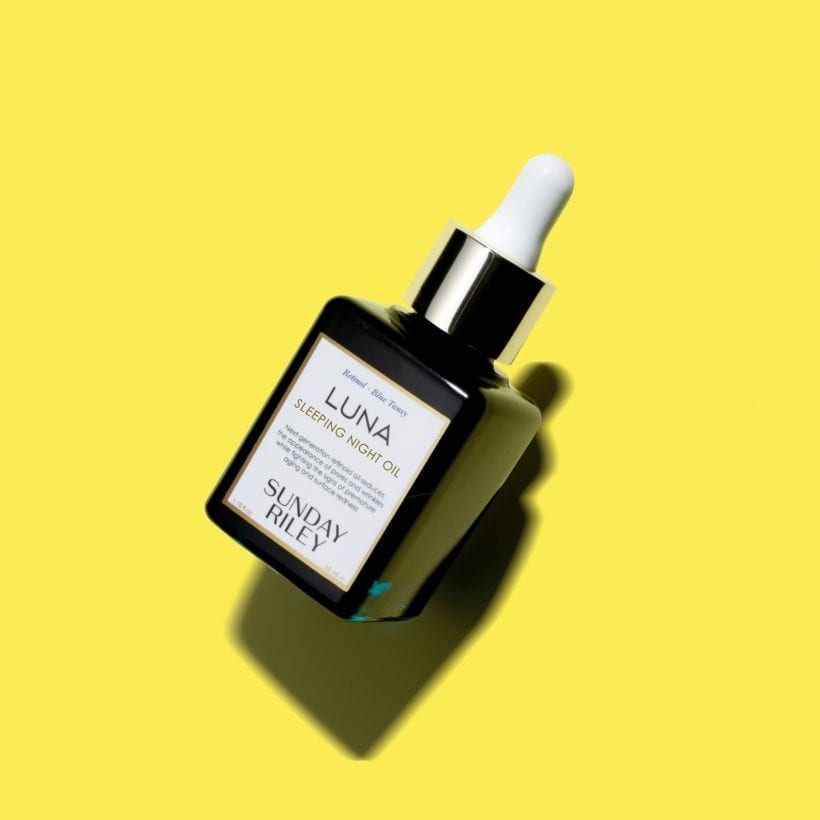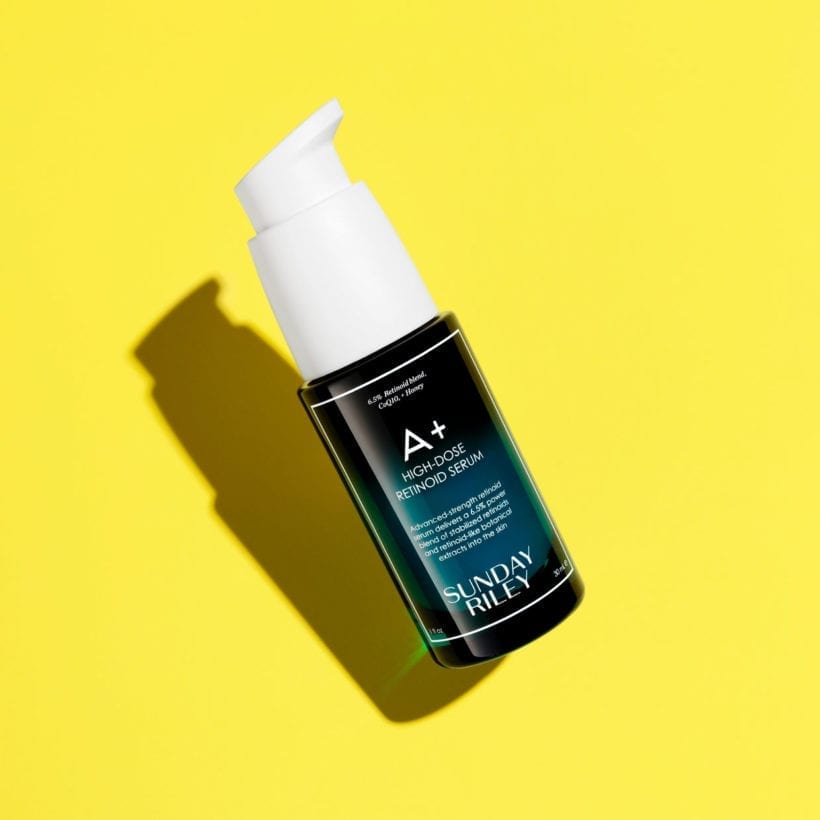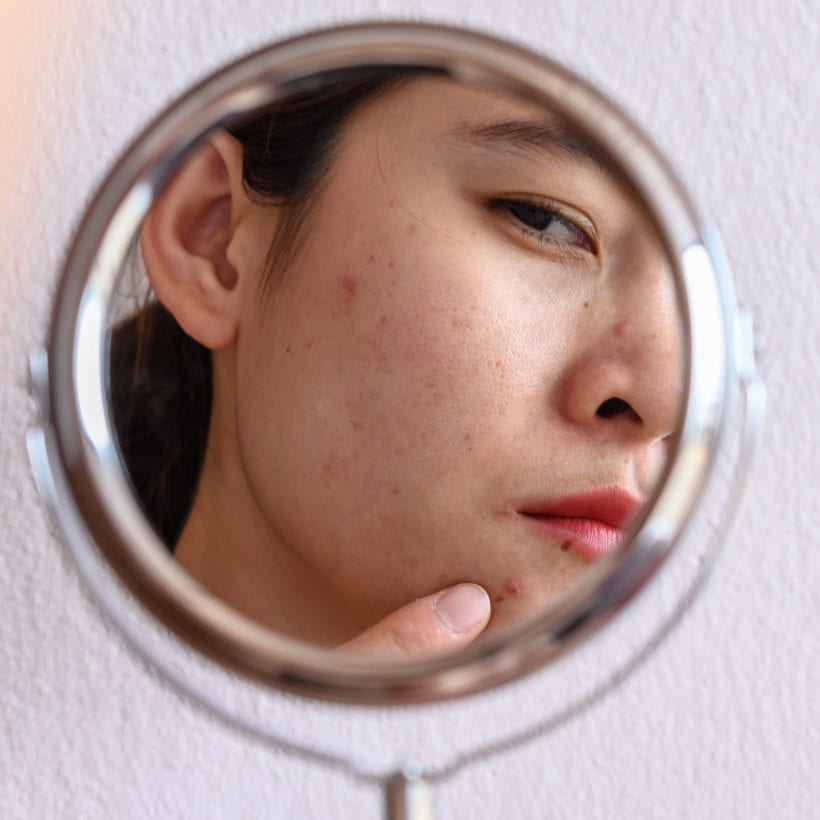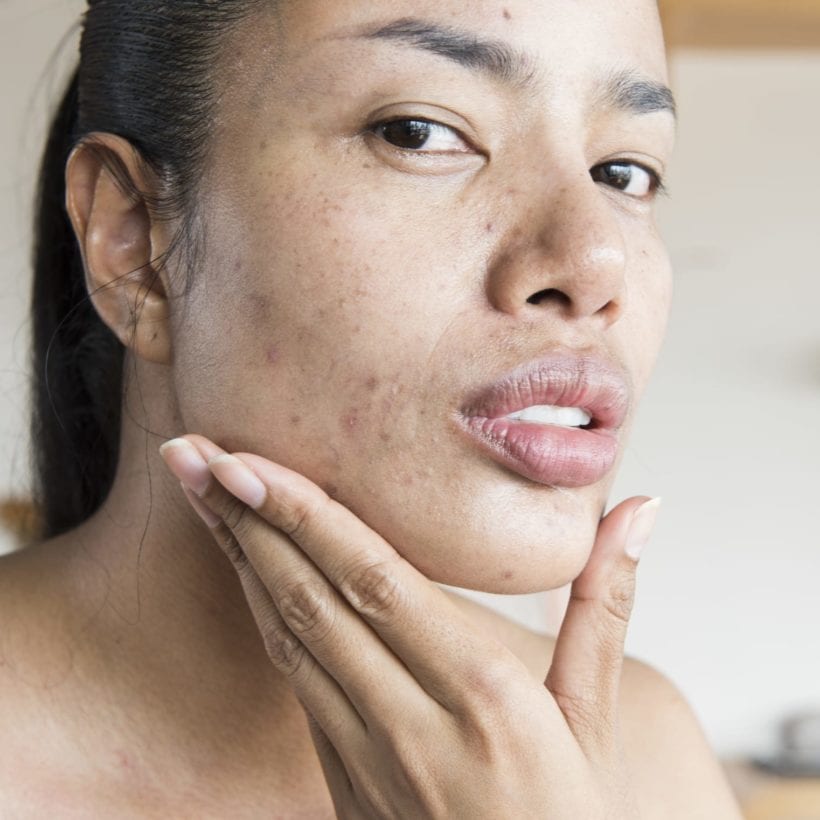There’s a hierarchy of pimples — and “blind pimples” are at the top.
There are blackheads (aka open comedones), annoyances that usually disappear with the right toner. There are whiteheads (closed comedones), frustrating little bumps that respond well to retinoids. There’s inflammatory acne, the angry-looking red bumps that can really ruin your day. And then, in their own special hell, are blind pimples — the dreaded type of acne that arises without a warning and makes itself comfortable in your skin for the long haul no matter what you seem to do or what products you throw at it.
Meet the Experts
Sunday Riley , CEO, founder, product formulator
Hadley King, M.D., is a board-certified dermatologist who specializes in medical and cosmetic dermatology.
Carmen Castilla, M.D., is a board-certified dermatologist in New York.
“’Blind pimple’ is a layman’s term for cystic acne,” explains Hadley King, M.D., a board-certified dermatologist based in New York. “They’re the kind of deep, tender pimples that aren’t superficial enough to have an obvious connection to the surface.” In other words, unlike the other types of blemishes, blind pimples don’t have a head — they’re unpoppable. And infuriating.
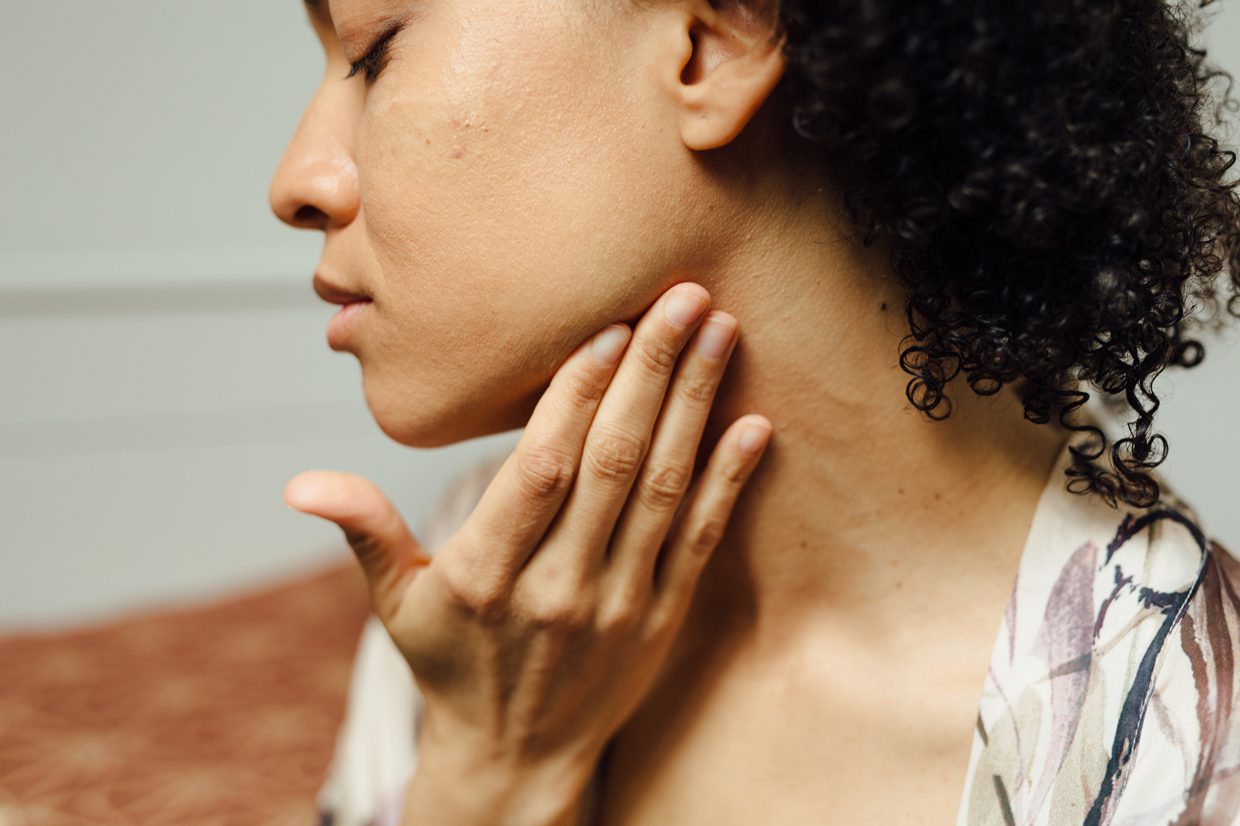
What causes a blind pimple?
Do we all have p. acnes bacteria on our skin? ‘Yes, we do. However, there are different strains of the bacteria and some are more aggressive,’ explains Sunday Riley, CEO, founder and product formulator. ‘Everyone’s skin is very different. You may be more prone to acne if you have more aggressive forms of the p. acnes bacteria than your friend with clearer skin. You may produce more sebum or your sebum may be thicker and stickier, providing a better environment for the p. acnes bacteria to grow. You may have certain genes that make you more susceptible to acne. You may not be treating your skin properly.’
The cystic acne that causes a blind pimple develops when pores become clogged by a pernicious combination of dead skin cells, sebum (aka oil), and bacteria. Though they’re called blind, these bumps are far from invisible — cystic acne typically shows up as a large, red, swollen bump that’s tender to the touch. They run deep in your skin and are the most likely to leave a scar when they go.
Technically, no one is immune to blind pimples but cystic acne is often caused by changes in hormones, meaning you might be more likely to see these bumps around your period. They’re common on both the face and the body, popping up everywhere from the chin to the chest, to backs and shoulders, and even behind the ears. ‘Hormones called andogens cause an increase in sebum production. An increase in sebum production clogs the pores and drives the p.acnes bacteria into the sebum-rich, low-oxygen environment where an inflammatory response kicks off, leading to red, painful breakouts,’ explains Sunday Riley.
Can stress cause blind pimples?
Given the hormonal nature of these particularly tenacious blemishes, stress can be a big factor in causing blind pimples. “Stress triggers the release of the hormone cortisol from the adrenal glands,” says Carmen Castilla, M.D., a board-certified dermatologist in New York. That cortisol triggers the production of more sebum, “which can block pores and lead to inflammation that ultimately results in acne,” she explains. Making things worse, the stress cycle also impedes healing, which can make blind pimples stick around even longer. 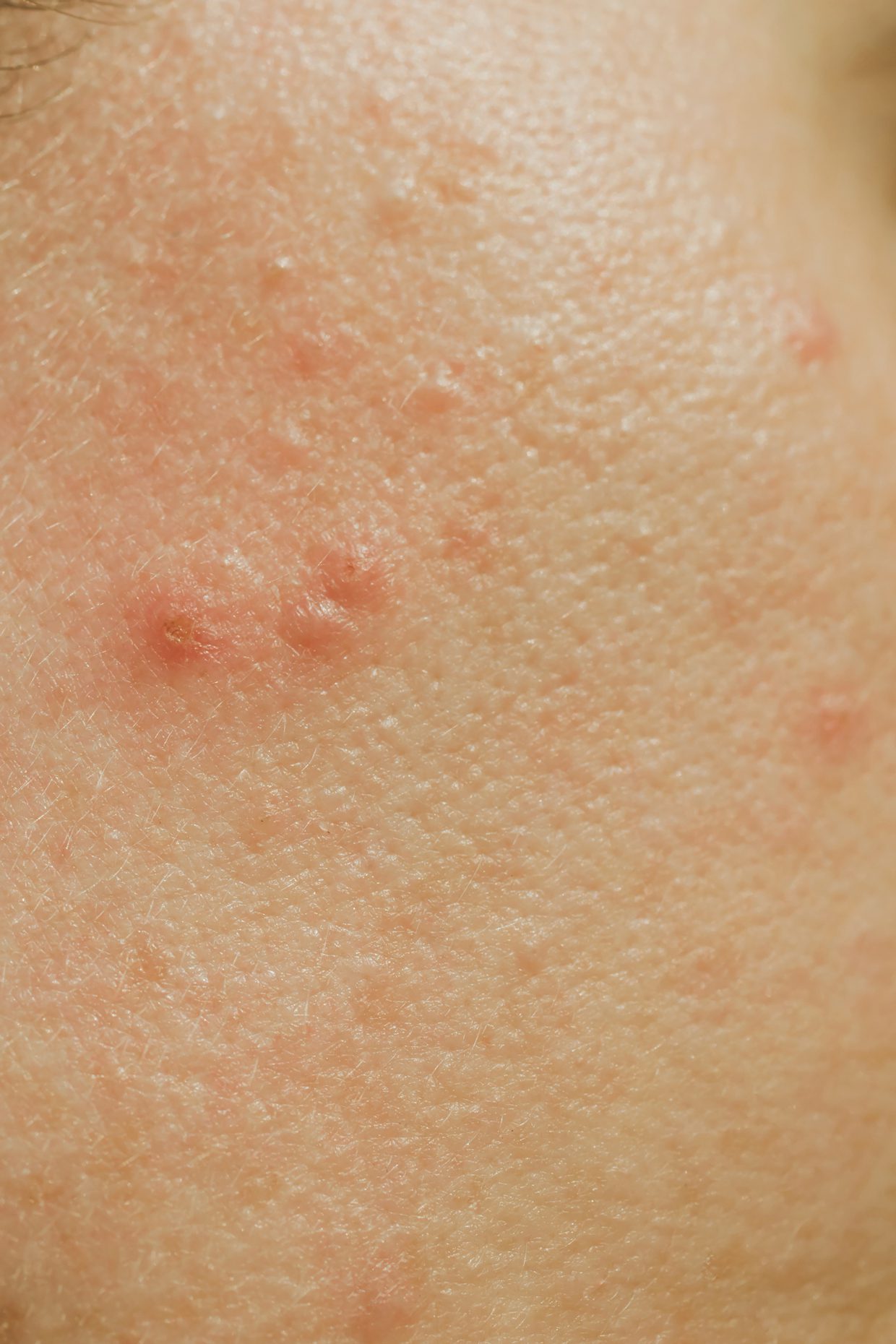
How to treat a blind pimple
So, how do you get rid of these tenacious blemishes? Here’s your action plan.
Don’t touch it
Given their nastiness, you might be tempted to throw everything you have at a blind pimple to make it go away. But when it comes to cystic acne, Dr. King recommends a less is more approach. “If it hasn’t come to a head, then don’t put pressure on it. You are likely to do more harm than good if it’s not very ready to drain,” she says. Trying to squeeze a blind pimple can make it worse, releasing more pro-inflammatory material like bacteria into the skin, explains Dr. King, “causing more inflammation, which will increase the time to heal, the risk of scarring, and the risk of discoloration.” Trying to pop a blind pimple can also increase the risk of triggering an infection.
Try a warm compress
Instead, you can try to encourage the embedded clog to make its way to the surface of the skin, where it can safely drain on its own. “If it is the kind of inflammatory pimple that will come to a head and drain, then a warm compress may expedite this process,” says Dr. King. Soak a washcloth in warm water and apply it to the pimple three times a day for five minutes each time.
Exfoliate gently
‘Whether you suffer from acne or you’re worried about fine lines and wrinkles or dark spots and discolorations, Good Genes All-in-One Lactic Acid treatment really improves the appearance of the skin no matter what condition you’re working with,’ adds Sunday Riley. ‘Lactic acid is one of my absolute favorite alpha-hydroxy acids. It’s a larger molecule, so it doesn’t sink as deeply into the surface of the skin as other alpha-hydroxy acids which makes it a little bit gentler, but it’s also the only one that’s hydrating. So it’s great for everyone. It really transforms the surface of your skin by exfoliating the dull, pore clogging debris that’s on the top of your skin, gently killing P acne bacteria.’
Choose the right exfoliators
‘P. Acnes bacteria form biofilms, meaning that they are pretty good at clustering together and sticking to your skin. Plus, the p.acnes bacteria that are already inside of your closed comedones won’t get scrubbed away by a physical exfoliant. It’s best to exfoliate with an AHA (alpha hydroxy acid), like Good Genes, to remove the dead skin cells, and use a BHA (beta hydroxy acid), like U.F.O. Ultra-Clarifying Acne Treatment Face oil , to gently dissolve the sebum buildup,’ explains Sunday Riley.
Reach for acne fighters
Even though treating a blind pimple is significantly harder than treating other types of acne, topical solutions can still be of some value. Specifically, topical acne treatments that fight off bacteria (like salicylic acid) and encourage exfoliation (like AHA and retinol) can help speed the process of the embedded acne coming to a head so it can drain, says Dr. King. Products with niacinamide can also be life-changing.
‘My oldest daughter’s skin is very, very acne prone. I looked at her pictures when she went to a school dance. And in the photos, she was covering her face, hiding, because she didn’t want to show her face. It broke my heart. One of my really good friends is a dermatologist. He proposed this and that. And he just couldn’t solve it. At that moment, I went back to the drawing board. I was thinking we should start with pores. I created some products just for her and it worked great. And after that I was like, I think we got a product here — that’s how B3Nice 10% Niacinamide serum was born’, tell Sunday Riley.
YOUR FULL ACNE ROUTINE
A.M.:
Cleanse with Ceramic Slip Cleanser. After cleansing, massage 3-4 drops of U.F.O. Ultra-Clarifying Face Oil into your face and neck. Follow with 1-2 pumps of Good Genes Lactic Acid Treatment. We recommend completing your morning routine with Auto Correct Eye Cream.
P.M.:
Cleanse with Ceramic Slip Cleanser. After cleansing, apply 1-2 pumps of A+ High-Dose Retinoid Serum to the entire face, massaging in well. Can be followed with U.F.O. Ultra-Clarifying Face Oil, if you did not use it in the morning. We recommend completing your evening routine with Luna Sleeping Night Oil, and 5 Stars Retinoid + Niacinamide Eye Serum.
AS NEEDED: Apply Saturn Sulfur Spot Treatment to blemishes and congested areas. Let dry and remove with water. Can be used several times a week. Follow with a hydrating product, like C.E.O. Afterglow.
As a rule, we recommend A+ High-Dose Retinoid Serum should be used in the evenings. Other than that, there is no “wrong way” to incorporate these products into your routine. You can use U.F.O. Ultra-Clarifying Face Oil and Good Genes Lactic Acid Treatment either morning or night.
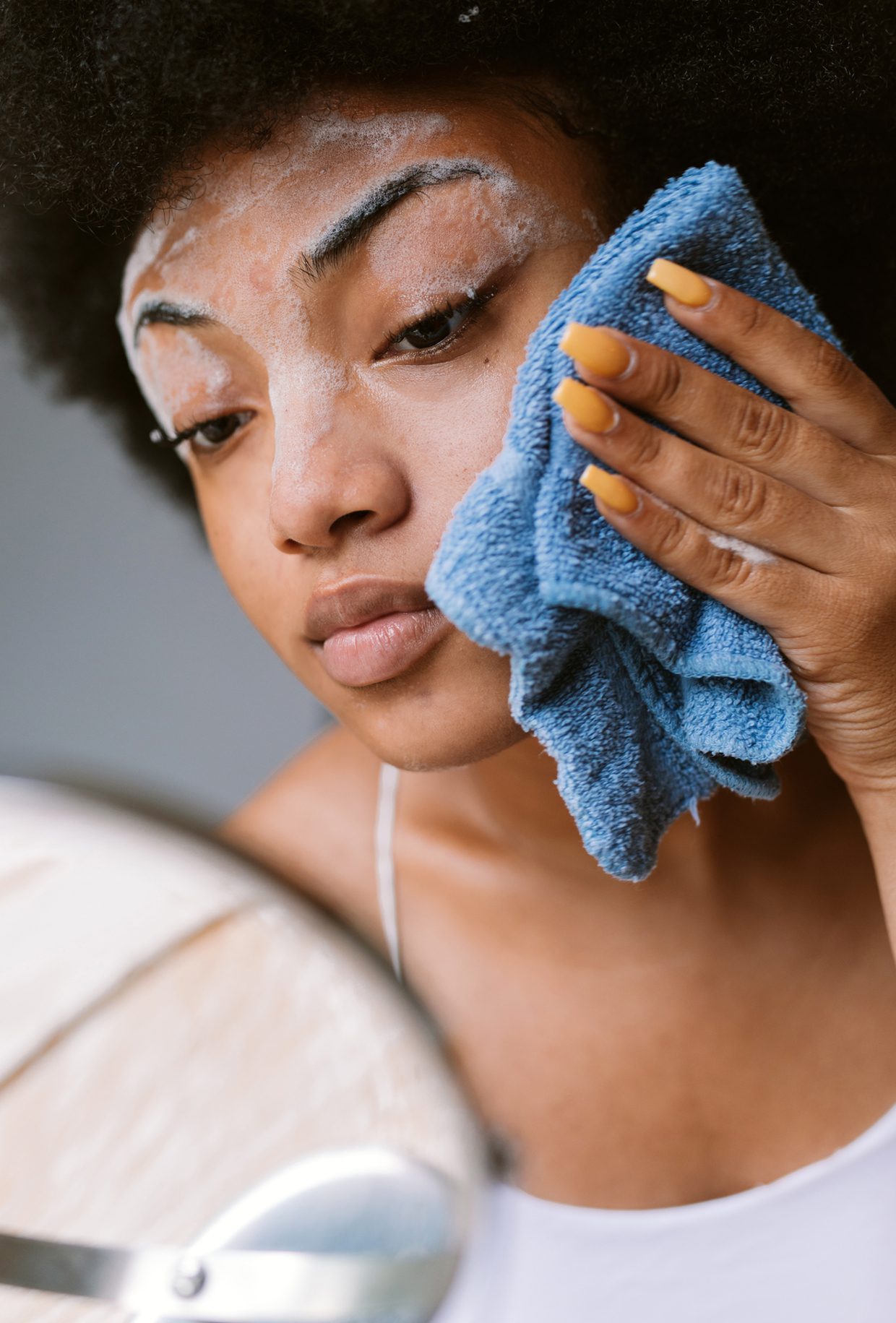
See your dermatologist
Not all blind pimples will show themselves on the surface of your skin, no matter what you do. “If it’s deep enough, it may not come to a head and drain. It may slowly resolve over months,” says Dr. King. This is where a dermatologist comes in. “Cystic pimples can be treated with intralesional cortisone injections to decrease the inflammation — nothing works as quickly to decrease the inflammation,” says Dr. King. The process takes less than five minutes and starts working right away. “An intralesional cortisone injection really can often make a pimple dramatically better overnight, particularly if you catch it early,” Dr. King says.
If you get the occasional random blind pimple, a quick trip to the dermatologist for a cortisone shot might be your preferred defense. But if blind pimples are a recurring issue, you may want to go on the offense with acne medication.
There are three primary medications that can take blind pimples down: oral contraceptives, which regulate hormone levels; spironolactone, another hormonal treatment; and Isotretinoin, an oral retinoid you might know as Accutane. (The latter two can cause pregnancy complications, according to the American Academy of Dermatology, so it’s important to discuss your birth control method with your dermatologist.)
Will a blind pimple go away by itself?
The good news? Even if you do nothing, blind pimples will eventually disappear on their own — they key word here being eventually. “Cystic pimples can linger for a very long time,” Dr. Castilla says, anywhere from a few days to several weeks. Typically, she says, the redness will resolve before that. “But you may still be able to feel a hard lump underneath the skin, which is a sign of residual inflammation. This residual inflammation can sometimes take 6-8 weeks to fully resolve,” Dr. Castilla says.
As with any acne, it’s good to be proactive with blind pimples. “Deep, cystic acne has a risk of leaving permanent scarring so I would recommend seeing a board-certified dermatologist if you are experiencing this kind of acne,” says Dr. King.
We only recommend products we have independently researched, tested, and loved. If you purchase a product found through our links, Sunday Edit may earn an affiliate commission.
